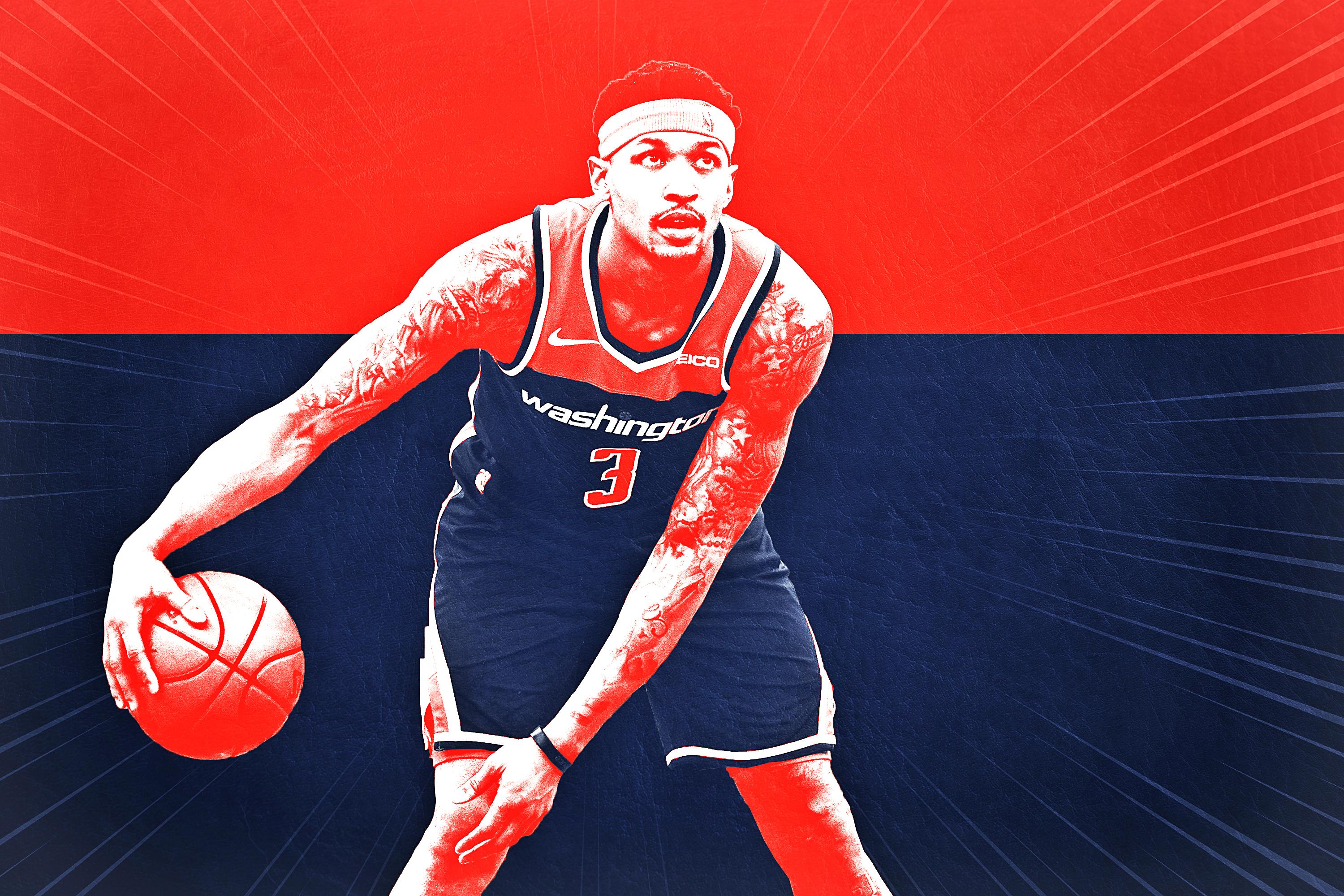
Bradley Beal is playing the best basketball of his life. Look at the tape, and look at the numbers. Watch him carve through the lane. Watch him pull up early. Watch him find his teammates, and his teammates find him. The Wizards have lost five of their past six games and sit six and a half games out of the playoff picture at 31-45. But the team’s center of energy is clear.
Watching Beal find his way this season has been a delightful, if disorienting, experience for Wizards fans. On a Washington team that in recent years has been saddled by dysfunction, infighting, and unrealistic expectations, beautiful basketball has not been a priority. And hardly anything about 2018-19 has been an aesthetic pleasure for this group. Beal is the exception. John Wall, who’s out with a ruptured Achilles, has not seen the court since late December and probably won’t play again until the tail end of the 2019-20 season. That’s left Beal in the driver’s seat, and by virtually any measure he’s thrived. Beal’s usage (27.6) and efficiency ratings (20.8) have both jumped to career highs; his true shooting (58.5) and assist percentages (23.1) have both risen from last season’s marks; he’s playing more minutes (37.6) than any other player in the league, and it hasn’t cost him a step.
Beal is somewhat of a throwback star, not analytically charged or physically overpowering like this season’s MVP front-runners. Rather, he’s a prototypical 6-foot-5 score-first guard who seems at ease in an era when players know better than to chuck from the midrange. He can find the sweet spot beyond the arc and use quickness and vision to make plays from everywhere else. What Beal has done this season is not beautiful because it is a revelation, but because it is familiar, and because he’s learned to do so many things well at once.
Perhaps it’s fitting, then, that he’s the face of these Wizards, a team with one foot in the Process and one foot in the past. Over the past year, the Wiz have traded Otto Porter Jr., Marcin Gortat, Kelly Oubre Jr., and Markieff Morris. Turn on a local Washington telecast, and fans might lack familiarity with much outside of Steve Buckhantz’s voice (and even that could change soon). Washington is bad, but not bad enough to realistically stand a chance of drafting Zion Williamson or Ja Morant this June. Beal’s brilliance has made that situation possible. In the 10 games from February 27 through March 16, he averaged 29.3 points on 48.4 percent shooting during a stretch in which the team went 6-4. He’s lifted the Wizards to a point where whatever they are now seems likely to resemble what they’ll be for the foreseeable future.
Washington’s current predicament all stems back to the supermax extension it gave Wall in the summer of 2017. Back then, high off the most promising playoff run that the franchise had made since the 1970s, the Wizards locked their point guard into a four-year, $169 million deal. Since then, injuries have limited him to 73 games across two seasons. And that massive extension? It doesn’t even kick in until October. The Wall contract, which also includes a 15 percent trade kicker, makes it nearly impossible for the Wizards to start over from scratch. And that inability to rebuild has left Washington in a basketball quarantine. Until 2023, the team will be at least in part a John Wall production.
If Beal is named to an All-NBA team this season, he’ll be eligible for the supermax as well. A potential extension, which could be signed in the 2020 offseason, would run through 2024-25 and round out the 13th year of this Wizards era. And though continuity on great teams can offer fans a sense of comfort and closeness, consistency without a plan for improvement can do the opposite.
If Washington offers Beal the supermax, it would quadruple down on its core years beyond its expiration date. While Beal is the only good thing the organization has going, who knows what the world will look like in 2025? He will be 31 then; will he still have his legs? And what’s the ceiling for a franchise with two supermax contracts and no track record of success? Beal’s season has been quintessentially Wizardsian as a micro-level triumph with potential for macro-level disaster.
Two months ago, owner Ted Leonsis was defiant in getting behind his star as part of an apparent quest to outrun reality. “Bradley Beal told me, ‘We got enough. We’re going to make the playoffs. We’re not going to let you down,’” Leonsis told reporters in London. “So who am I to change the goals?” In that same conversation, Leonsis pushed this ethos into the future: “We will never, ever tank.”
The Wizards haven’t tanked, though it’s unclear what they’ve gained from running comically and futilely from mathematical elimination. Washington’s lack of willingness to rebuild has cost it. The brightest part of this season, ironically, might cost it, too.